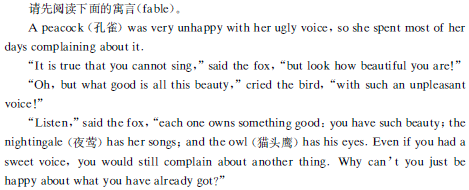题目内容
11.The captain as well as his team interviewed shortly after they won the gold medal.( )| A. | are | B. | was | C. | is | D. | were |
分析 在赢得金牌后不久,队长和他的球队接受了采访.
解答 B 考查动词的时态和主谓一致.题干中主语the basketball coach后加as well as his team,谓语动词单复数形式应与the basketball coach保持一致,故排除A项和D项.根据语境after the match for their outstanding performance可知谓语动词的时态应为一般过去时,故选择B项.
点评 主谓一致是高考的重要考点之一,解决此类题目要找准句子主语,判断句子主语究竟是单数还是复数. 在英语句子里,谓语受主语支配,其动词必须和主语在人称和数上保持一致,这就叫主谓一致.寻其规律,大致可归纳为三个原则,即语法一致、逻辑意义一致和就近一致原则.

练习册系列答案
 寒假大串联黄山书社系列答案
寒假大串联黄山书社系列答案 寒假创新型自主学习第三学期寒假衔接系列答案
寒假创新型自主学习第三学期寒假衔接系列答案
相关题目
6.Many of the only children are so accustomed to _ that they react violently when they hear something different.( )
| A. | having praised | B. | praised | C. | praising | D. | being praised |
